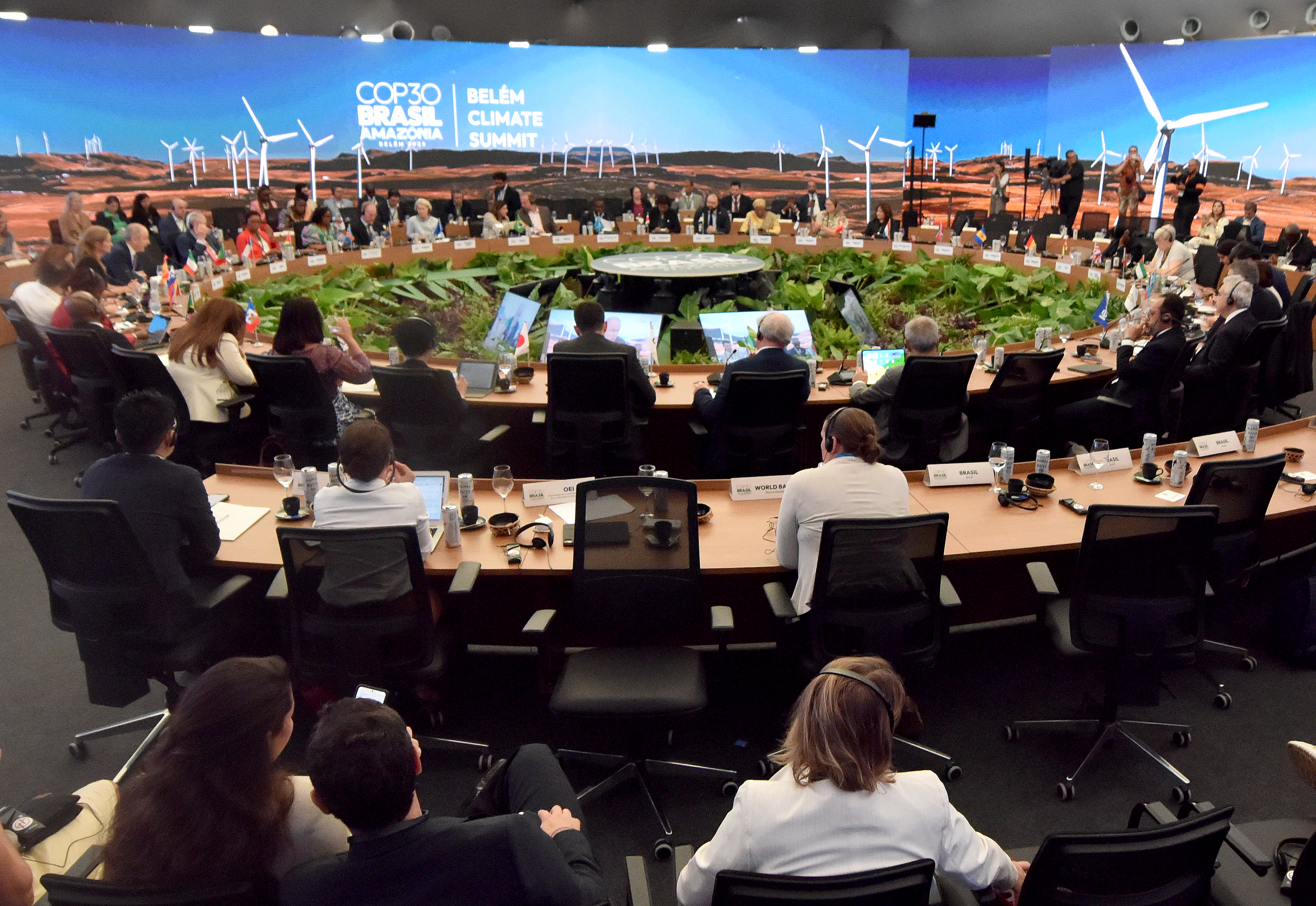The Conference of the Parties (COP) is the annual meeting of the United Nations Framework Convention on Climate Change (UNFCCC). COP30 is the 30th such summit. It will be held in November 2025 in Belém, Brazil. The meeting matters because climate change is a global problem: greenhouse gases do not respect borders, and we need collective action. Without progress, the world risks rising temperatures, extreme weather, sea-level rise and harm to vulnerable communities. By the time COP30 takes place, twenty-nine earlier COP meetings will have already set global goals, guidelines, and promises for climate action.

COP30 is crucial because it marks the 30th edition and comes at a moment when many countries must raise their ambitions and deliver on earlier commitments. In this article, we'll take a look at the theme of COP30, the host country, and other key details you should know.
What Does COP30 Stand For?
"COP" stands for the United Nations Framework Convention on Climate Change (UNFCCC) Conference of the Parties. COP30 means the 30th meeting of the Parties to the UNFCCC. The "Parties" are the nearly 200 countries that have signed the convention. In short, COP30 is the 30th session of the UN global climate change negotiation forum.
COP30 Held in Which Country?
The host country is Belém (city) in Brazil, which will host COP30 from 10 to 21 November 2025. One of the key themes is adaptation—making communities, nature and economies resilient to climate change. The host country aims to push for the implementation of existing climate commitments, nature-based solutions (especially forests) and inclusive global cooperation.
What Are The Six Pillars Of COP30?
Under the COP30 "Action Agenda", six thematic pillars guide the work ahead. These are:
1. Mitigation (reducing greenhouse gas emissions)
Reducing greenhouse gas emissions means cutting carbon and other heat-trapping gases so the planet warms less. Examples include: A country shifting its power plants from coal to solar and wind to cut greenhouse gas emissions and slow global warming.
2. Adaptation (building resilience to climate impacts)
Building resilience means helping communities, ecosystems, and infrastructure prepare for and withstand the effects of climate change, such as storms and droughts. Examples include a coastal community building flood defences and installing early warning systems to withstand stronger storms and sea-level rise.
3. Finance (mobilising money for climate action)
Mobilising money means securing and directing funds from governments, the private sector and other sources to support climate solutions globally. Examples include: A multilateral fund provides grants and low-interest loans to help developing countries invest in clean energy and climate-resilient infrastructure.
4. Technology (innovations, transfer of clean tech)
Technology refers to developing and sharing new tools and clean energy systems, and to technology transfer, so that all countries can adopt better climate solutions. Examples include: An innovation programme supports the transfer of electric-vehicle technology and efficient heating systems to countries with older, polluting infrastructure.
5. Capacity-building (strengthening institutions, skills, and local actors)
Capacity-building means enabling local governments, communities and organisations to have the skills, institutions and systems to act on climate change. Examples include NGOs running training workshops for local government staff to help them design and implement climate-adaptation plans effectively.
6. Means of implementation
Means of implementation integrates mitigation, adaptation, finance, tech and capacity-building into coherent action so commitments become real-world change. Examples include: All of the above pillars are linked by policies, governance, and institutions that turn climate commitments into real-world action.
When And Where Will COP30 Take Place?
COP30 will be held in Belém, Brazil. The official dates are 10 to 21 November 2025. There's also a heads-of-state summit at the start (6-7 November) in Belém. The venue is located in the Amazon region, underscoring the importance of forests and ecological issues.
What Is The Agenda For Holding COP30?
The agenda is broadly to assess and accelerate climate action by countries and other actors. Key items include:
- Reviewing the first global stocktake (how far we are from meeting the goals of the Paris Agreement) and translating that into action.
- Encouraging updated national climate plans (NDCs) and mobilising finance and technology for implementation.
- Emphasising adaptation, nature-based solutions (especially forests), and a just transition that includes vulnerable communities.
- Enabling multilevel cooperation (governments + cities + private sector + civil society) under the six-pillar framework.
List Of Nations That Will Take Part In COP30
Nearly all the Parties to the UNFCCC are expected to take part in COP30. Most of the world's nations are eligible to participate in COP30 (about 198 under the United Nations Framework Convention on Climate Change). Some high-level heads of state will not attend the leaders' summit in Belém, which is unusual for major emitters. This absence raises questions about momentum and the quality of outcomes.
Major pledges expected
Some significant items to watch:
- A climate-finance roadmap of $1.3 trillion from "Baku to Belém" aiming to scale up money for climate action.
- Advancement of carbon-market rules under the Paris Agreement Article 6, which many countries still haven't fully implemented.
- Calls for more decisive action on adaptation and resilience, particularly for low-income countries bearing the brunt of climate change impacts.
Comments
All Comments (0)
Join the conversation